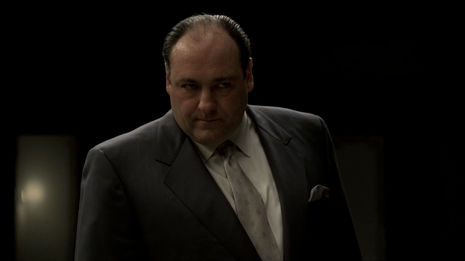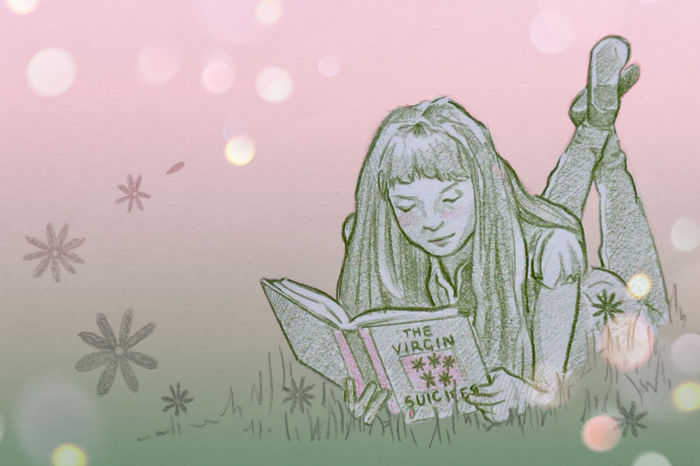Investing in the antihero
Daisy Simpson explores why a TV cad like Tony Soprano is so subversively likable

What is Tony actually like in Season One of The Sopranos? Well, factually speaking, he’s repugnant. He makes a living from gambling, extortion and other such debaucherous goings-on, all while acting as though he possesses a kind of moral authority that justifies him operating outside the law. He commits murder and other violent acts instinctively, in broad daylight and in the blink of an eye. He teaches his children that it’s alright to steal, cheat and behave as though the rules don’t apply to them. He uses misogynistic language and spends most of his time in a seedy strip joint. And he cheats on his wife, the ever-wry and well-dressed Carmela.
So why do I, as a fresh viewer, like him so much?
“Television can be used to draw out and develop a well-crafted screen individual over dozens of episodes”
The ‘piece of fictional media in which the protagonist isn’t necessarily virtuous’ phenomenon is hardly a new one. You could argue that it dates back to Greek mythology, in which the supposedly majestic king of the gods is an incestuous serial rapist. But the television character who is simultaneously morally patchy and possible to care about is a rarer breed than its theatrical or film equivalent. As excruciating as we may find it to watch Othello’s mounting paranoia and rage towardly the patently innocent Desdemona, the discomfort is over after an hour or two. Similarly, Michael Keaton’s Birdman will only bitch, self-flagellate and wallow in narcissism for so long. Television is a different beast – a media form which can be used to draw out and develop a well-crafted screen individual over dozens of episodes. This is mostly positive, as it enables greater complexity; but that complexity is only brought to fruition if the writers and directors know what to do with its initial seeds.
A year or so ago, I attempted to watch Orange is the New Black, a drama on Netflix documenting the experiences of various women coexisting in the same prison. I got through the first season, but after taking a break from it for a comfort rewatch of Friends, I realised that I couldn’t continue – something was missing. On the face of it, its premise is not that different from that of The Sopranos. Profoundly damaged and flawed people who have broken the law, having their various character layers peeled away bit by bit – I eat that kind of thing up. But while Piper Chapman is officially the main character of Orange is the New Black, I never felt that the plot lingered on her long enough for me to form a true attachment to her. Just as I was starting to get comfortable with her, the focus would be yanked away to a peripheral character, whose story would in turn occupy perhaps three quarters of an episode before being abruptly and unceremoniously moved on from. As a result, I felt that I was being left with a scattered mosaic of characteristics, backstories and gratuitously portrayed trauma – nothing cohesive or emotionally engaging. Frankly, I was left cold.
“Everything we despise about Tony – his slovenliness, his vulgarity, his evasions, his hypocrisies and sexual missteps – is what makes him so riveting”
The Sopranos, on the other hand, is unambiguously Tony’s show. Every storyline, even those in which others play more major roles, is filtered through his gaze, his perspective. The therapy sessions function as a sort of storytelling fulcrum in the first season, serving to introduce the supporting ensemble and reveal their significance, while at the same time reinforcing one man’s narrative predominance. Furthermore, everything we despise about Tony – his slovenliness, his vulgarity, his evasions, his hypocrisies and sexual missteps – is what makes him so riveting. James Gandolfini mumbles, curses, lies, fidgets, grimaces and gurns his way into our collective audience consciousness; he demands, through a never-wavering, hyper-intense presence that illuminates the screen, that we care. And the combination of this presence with his vulnerability, as inconsistent and veiled as the latter may be, works to ensure that we do. Any overwrought Cambridge student seeking to be diverted by immersion in a gripping fictional world should give The Sopranos a watch.
Want to share your thoughts on this article? Send us a letter to letters@varsity.co.uk or by using this form
 News / Cambridge academics sign open letter criticising research funding changes22 February 2026
News / Cambridge academics sign open letter criticising research funding changes22 February 2026 News / University Council rescinds University Centre membership20 February 2026
News / University Council rescinds University Centre membership20 February 2026 News / Supporters protest potential vet school closure22 February 2026
News / Supporters protest potential vet school closure22 February 2026 News / Hundreds of Cambridge academics demand vote on fate of vet course20 February 2026
News / Hundreds of Cambridge academics demand vote on fate of vet course20 February 2026 Comment / A tongue-in-cheek petition for gowned exams at Cambridge 21 February 2026
Comment / A tongue-in-cheek petition for gowned exams at Cambridge 21 February 2026








